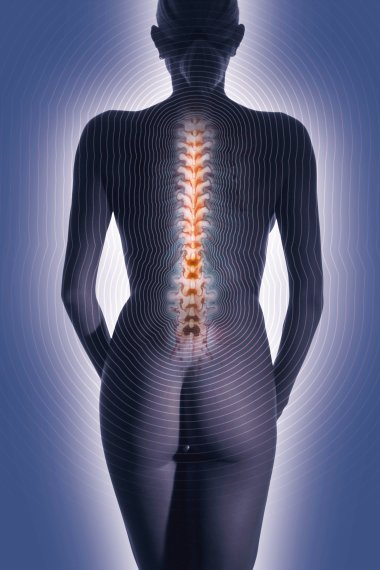| 1 x afterRenderRawModule mod_tags_popular (Search) (20.08KB) (31.87%) | 46.01ms |
| 1 x afterRenderRawModule mod_articles_category (READ MORE...) (6.88KB) (24.63%) | 35.56ms |
| 1 x afterRenderComponent com_tags (1.36MB) (14.52%) | 20.96ms |
| 1 x afterInitialise (1.28MB) (7.64%) | 11.03ms |
| 1 x beforeRenderRawModule mod_articles_category (READ MORE...) (439.86KB) (3.19%) | 4.61ms |
| 1 x afterRoute (840.02KB) (3.03%) | 4.38ms |
| 1 x afterRender (221.98KB) (3.01%) | 4.35ms |
| 1 x beforeRenderRawModule mod_custom (Chronic fatigue tied Alan to his bed but Q10 capsules saved him:) (244.28KB) (1.37%) | 1.97ms |
| 1 x afterRenderRawModule mod_finder () (134.09KB) (1.14%) | 1.65ms |
| 1 x afterRenderRawModule mod_languages (Sprogskift) (22.41KB) (1.03%) | 1.48ms |
| 1 x afterRenderRawModule mod_menu (Main Menu - English) (186.95KB) (0.96%) | 1.39ms |
| 1 x afterDispatch (19.53KB) (0.96%) | 1.38ms |
| 1 x afterRenderRawModule mod_custom () (22.64KB) (0.58%) | 838μs |
| 1 x afterRenderRawModule mod_menu (Main Menu - English) (6.3KB) (0.5%) | 724μs |
| 1 x beforeRenderRawModule mod_menu (Main Menu - English) (25.14KB) (0.46%) | 668μs |
| 1 x afterRenderRawModule mod_languages (Sprogskift Mobil) (3.89KB) (0.44%) | 638μs |
| 1 x afterLoad (456.41KB) (0.42%) | 609μs |
| 1 x After Access::preloadComponents (all components) (103.05KB) (0.41%) | 591μs |
| 1 x afterRenderRawModule mod_finder () (6.29KB) (0.35%) | 512μs |
| 1 x afterRenderRawModule mod_menu (Are you getting enough vitamins and minerals?) (22.39KB) (0.32%) | 465μs |
| 1 x Before Access::preloadComponents (all components) (50.9KB) (0.26%) | 381μs |
| 1 x beforeRenderModule mod_articles_category (READ MORE...) (20.82KB) (0.23%) | 326μs |
| 1 x afterRenderRawModule mod_menu (Did you know.....) (25.52KB) (0.21%) | 298μs |
| 1 x beforeRenderComponent com_tags (20.62KB) (0.2%) | 288μs |
| 1 x afterRenderRawModule mod_menu (The key to increased well-being) (17.83KB) (0.16%) | 226μs |
| 1 x beforeRenderRawModule mod_custom () (8.66KB) (0.12%) | 174μs |
| 1 x afterRenderRawModule mod_custom (BOOST YOUR IMMUNE DEFENSE) (3.8KB) (0.12%) | 173μs |
| 1 x beforeRenderRawModule mod_custom () (6.62KB) (0.1%) | 145μs |
| 1 x afterRenderModule mod_custom () (2.43KB) (0.1%) | 140μs |
| 1 x afterRenderRawModule mod_custom () (904B) (0.09%) | 131μs |
| 1 x afterRenderRawModule mod_custom () (896B) (0.07%) | 106μs |
| 1 x beforeRenderRawModule mod_menu (Main Menu - English) (5.07KB) (0.07%) | 99μs |
| 1 x beforeRenderRawModule mod_custom () (688B) (0.06%) | 87μs |
| 1 x afterRenderModule mod_custom (Chronic fatigue tied Alan to his bed but Q10 capsules saved him:) (1.3KB) (0.04%) | 60μs |
| 1 x afterRenderModule mod_menu (Main Menu - English) (4.86KB) (0.04%) | 53μs |
| 1 x afterRenderModule mod_custom () (1.23KB) (0.04%) | 52μs |
| 1 x afterRenderRawModule mod_custom (Get additionel and more detailed knowledge ) (1.55KB) (0.03%) | 48μs |
| 1 x afterRenderModule mod_finder () (3.29KB) (0.03%) | 48μs |
| 1 x afterRenderModule mod_finder () (1.23KB) (0.03%) | 47μs |
| 1 x afterRenderModule mod_menu (Main Menu - English) (1.25KB) (0.03%) | 45μs |
| 1 x afterRenderModule mod_custom (Antiaging) (3.77KB) (0.03%) | 43μs |
| 1 x After Access::getAssetRules (id:8 name:com_content) (7.05KB) (0.03%) | 40μs |
| 1 x afterRenderModule mod_articles_category (READ MORE...) (1.25KB) (0.03%) | 40μs |
| 1 x afterRenderRawModule mod_custom (Chronic fatigue tied Alan to his bed but Q10 capsules saved him:) (1.06KB) (0.03%) | 39μs |
| 1 x afterRenderRawModule mod_custom (Overview of vitamins, minerals, and essential fatty acids) (960B) (0.03%) | 37μs |
| 1 x afterRenderModule mod_languages (Sprogskift Mobil) (1.27KB) (0.02%) | 31μs |
| 1 x afterRenderModule mod_custom (Cholesterol-lowering without side effects:) (1.28KB) (0.02%) | 30μs |
| 1 x afterRenderRawModule mod_custom (Useful Links) (1.02KB) (0.02%) | 30μs |
| 1 x beforeRenderRawModule mod_custom (Get additionel and more detailed knowledge ) (816B) (0.02%) | 28μs |
| 1 x beforeRenderRawModule mod_custom (BOOST YOUR IMMUNE DEFENSE) (6.45KB) (0.02%) | 27μs |
| 1 x afterRenderModule mod_custom (BOOST YOUR IMMUNE DEFENSE) (1.28KB) (0.02%) | 25μs |
| 1 x afterRenderModule mod_custom () (2.71KB) (0.02%) | 23μs |
| 1 x afterRenderRawModule mod_custom (Cholesterol-lowering without side effects:) (1.06KB) (0.02%) | 23μs |
| 1 x afterRenderModule mod_languages (Sprogskift) (5.31KB) (0.02%) | 22μs |
| 1 x afterRenderModule mod_menu (Are you getting enough vitamins and minerals?) (1.3KB) (0.01%) | 21μs |
| 1 x afterRenderModule mod_tags_popular (Search) (1.27KB) (0.01%) | 21μs |
| 1 x afterRenderModule mod_custom (Get additionel and more detailed knowledge ) (1.3KB) (0.01%) | 21μs |
| 1 x afterRenderModule mod_custom (Q10 goes by many names) (1.27KB) (0.01%) | 21μs |
| 1 x afterRenderRawModule mod_custom (Q10 goes by many names) (928B) (0.01%) | 20μs |
| 1 x afterRenderModule mod_custom (Overview of vitamins, minerals, and essential fatty acids) (1.31KB) (0.01%) | 20μs |
| 1 x afterRenderModule mod_custom (Check this before you buy a Q10 product) (1.28KB) (0.01%) | 20μs |
| 1 x afterRenderModule mod_menu (The key to increased well-being) (1.28KB) (0.01%) | 20μs |
| 1 x afterRenderModule mod_menu (Did you know.....) (1.27KB) (0.01%) | 20μs |
| 1 x afterRenderModule mod_custom (Useful Links) (1.27KB) (0.01%) | 20μs |
| 1 x afterRenderModule mod_custom (Are you taking supplements) (1.28KB) (0.01%) | 19μs |
| 1 x afterRenderModule mod_custom (Weight loss that works) (1.27KB) (0.01%) | 19μs |
| 1 x afterRenderRawModule mod_custom (Are you taking supplements) (1.03KB) (0.01%) | 18μs |
| 1 x afterRenderRawModule mod_custom (Antiaging) (912B) (0.01%) | 18μs |
| 1 x beforeRenderRawModule mod_languages (Sprogskift Mobil) (912B) (0.01%) | 17μs |
| 1 x Before Access::getAssetRules (id:8 name:com_content) (840B) (0.01%) | 17μs |
| 1 x afterRenderRawModule mod_custom (Check this before you buy a Q10 product) (944B) (0.01%) | 17μs |
| 1 x afterRenderRawModule mod_custom (Weight loss that works) (1.03KB) (0.01%) | 17μs |
| 1 x beforeRenderRawModule mod_menu (The key to increased well-being) (736B) (0.01%) | 17μs |
| 1 x beforeRenderRawModule mod_languages (Sprogskift) (3.94KB) (0.01%) | 17μs |
| 1 x beforeRenderRawModule mod_custom (Useful Links) (1.06KB) (0.01%) | 16μs |
| 1 x beforeRenderRawModule mod_tags_popular (Search) (2.36KB) (0.01%) | 15μs |
| 1 x beforeRenderRawModule mod_menu (Did you know.....) (720B) (0.01%) | 14μs |
| 1 x beforeRenderRawModule mod_custom (Cholesterol-lowering without side effects:) (368B) (0.01%) | 12μs |
| 1 x beforeRenderModule mod_custom (BOOST YOUR IMMUNE DEFENSE) (6.81KB) (0.01%) | 12μs |
| 1 x beforeRenderModule mod_tags_popular (Search) (1.98KB) (0.01%) | 12μs |
| 1 x beforeRenderModule mod_menu (Are you getting enough vitamins and minerals?) (2.13KB) (0.01%) | 12μs |
| 1 x beforeRenderRawModule mod_custom (Overview of vitamins, minerals, and essential fatty acids) (768B) (0.01%) | 11μs |
| 1 x beforeRenderRawModule mod_custom (Q10 goes by many names) (608B) (0.01%) | 11μs |
| 1 x beforeRenderRawModule mod_menu (Are you getting enough vitamins and minerals?) (2.5KB) (0.01%) | 11μs |
| 1 x beforeRenderModule mod_menu (The key to increased well-being) (352B) (0.01%) | 11μs |
| 1 x beforeRenderRawModule mod_finder () (6.34KB) (0.01%) | 11μs |
| 3 x beforeRenderModule mod_custom () (704B) (0.01%) | 11μs |
| 1 x beforeRenderModule mod_custom (Get additionel and more detailed knowledge ) (1.17KB) (0.01%) | 10μs |
| 1 x beforeRenderModule mod_custom (Overview of vitamins, minerals, and essential fatty acids) (384B) (0.01%) | 10μs |
| 1 x beforeRenderRawModule mod_custom (Check this before you buy a Q10 product) (752B) (0.01%) | 9μs |
| 1 x beforeRenderRawModule mod_custom (Are you taking supplements) (736B) (0.01%) | 9μs |
| 1 x beforeRenderModule mod_custom (Antiaging) (336B) (0.01%) | 9μs |
| 2 x beforeRenderModule mod_finder () (704B) (0.01%) | 9μs |
| 1 x beforeRenderModule mod_custom (Check this before you buy a Q10 product) (352B) (0.01%) | 9μs |
| 1 x beforeRenderModule mod_custom (Weight loss that works) (336B) (0.01%) | 9μs |
| 1 x beforeRenderModule mod_menu (Did you know.....) (336B) (0.01%) | 9μs |
| 1 x beforeRenderRawModule mod_custom (Weight loss that works) (736B) (0.01%) | 8μs |
| 1 x beforeRenderRawModule mod_custom (Antiaging) (720B) (0.01%) | 8μs |
| 1 x beforeRenderModule mod_custom (Q10 goes by many names) (208B) (0.01%) | 8μs |
| 1 x beforeRenderModule mod_custom (Are you taking supplements) (352B) (0.01%) | 8μs |
| 1 x beforeRenderModule mod_custom (Useful Links) (1.44KB) (0.01%) | 8μs |
| 2 x beforeRenderModule mod_menu (Main Menu - English) (720B) (0.01%) | 8μs |
| 1 x beforeRenderRawModule mod_finder () (2.3KB) (0.01%) | 8μs |
| 1 x beforeRenderModule mod_languages (Sprogskift) (720B) (0%) | 7μs |
| 1 x beforeRenderModule mod_custom (Chronic fatigue tied Alan to his bed but Q10 capsules saved him:) (768B) (0%) | 4μs |
| 1 x beforeRenderModule mod_languages (Sprogskift Mobil) (720B) (0%) | 3μs |
| 1 x beforeRenderModule mod_custom (Cholesterol-lowering without side effects:) (752B) (0%) | 2μs |
 An adult contains around one kilogram of calcium, which is the most abundant mineral in the human body. Bones and teeth store around 99% of our calcium and 1 per cent is used to support metabolic functions. Levels of calcium in the blood are tightly controlled, as the slightest deviations may result in serious symptoms of the nervous system and the heart.
An adult contains around one kilogram of calcium, which is the most abundant mineral in the human body. Bones and teeth store around 99% of our calcium and 1 per cent is used to support metabolic functions. Levels of calcium in the blood are tightly controlled, as the slightest deviations may result in serious symptoms of the nervous system and the heart.







 Vitamin B6, also known as pyridoxine, is converted to the active forms, pyridoxal phosphate and pyridoxamine phosphate. Vitamin B6 is water-soluble and because it does not get stored in the body we depend on regular intake of the nutrient. Vitamin B6 is destroyed by heating and light.
Vitamin B6, also known as pyridoxine, is converted to the active forms, pyridoxal phosphate and pyridoxamine phosphate. Vitamin B6 is water-soluble and because it does not get stored in the body we depend on regular intake of the nutrient. Vitamin B6 is destroyed by heating and light.
 "After about one week of taking the Q10 supplement I could feel a huge difference," says 23-year old Alan Piccini, who has been suffering from extreme fatigue and muscle aches ever since he was a child.
"After about one week of taking the Q10 supplement I could feel a huge difference," says 23-year old Alan Piccini, who has been suffering from extreme fatigue and muscle aches ever since he was a child. “Taking capsules with co-enzyme Q10 has freed me of the severe side effects of my cholesterol lowering medicine,” Mrs Franken explains.
“Taking capsules with co-enzyme Q10 has freed me of the severe side effects of my cholesterol lowering medicine,” Mrs Franken explains.